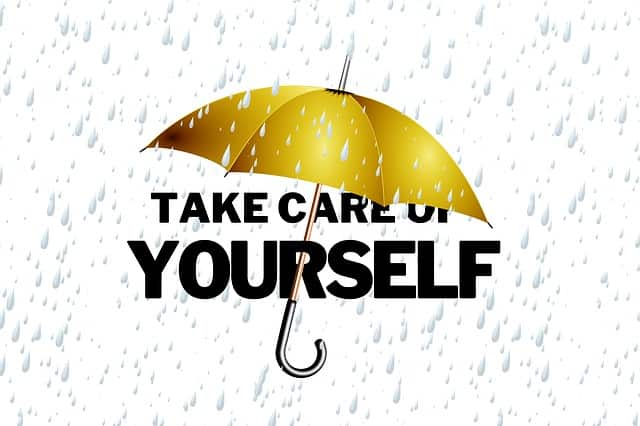Exclusive: How to cope with the death of a loved one during COVID-19 pandemic
The shock of losing someone close to you, your family, friend, relative, exacerbated with the pain of not being able to participate in their last rites often puts individuals in a situation where their mental health is affected severely.
- More than 4 million people have died worldwide due to COVID-19
- News consumption can increase the pain of a grieving individual
Trending Photos
) Pic Courtesy: Pixabay
Pic Courtesy: Pixabay New Delhi: The Coronavirus pandemic has caused a mental health crisis across the globe. According to the World Health Organisation (WHO), a staggering more than 4 million people have lost their lives across the globe due to novel coronavirus, leaving behind bereaved families who are even unable to say a proper goodbye to their loved ones due to social distancing norms.
The shock of losing someone close to you, your family, friend, relative, exacerbated with the pain of not being able to participate in their last rites often puts individuals in a situation where their mental health is affected severely.
Dr. Sanjeev P. Sahni, renowned Psychologist and author of ‘Let's Talk About Depression: A Focus on Australia, India and USA’ shares his insights as to how the restrictions on mobility because of the pandemic have increased the trauma of grieving families and what strategies one can adopt while talking to them so that they can deal with it effectively.
1) Sharing Grief: The physical and social distancing norms in place have increased the extent of grief one feels after losing their loved one. Even when someone close to you dies we aren’t able to participate in their last rites and this increases the extent of our bereavement. Therefore, it is important to reach out to people who have lost a loved one - whether it be through a voice and video call and make them know you are there for them.
2) Identifying people: People might indeed hesitate in sharing their grief. In such a scenario certain factors can be looked upon to identify such people. If someone is taking a lot of leaves from work or office, try to talk to the person. It might be because he/she is suffering from a certain mental health issue that originated after losing someone close to them. Even if someone is coming to office, but is either silent or seems deviated from work it could also be because of some bereavement. Sometimes people might even say things like ‘ I don’t want to live anymore’ or ‘what is the purpose and meaning of living life.’ These statements tell us that this person might be in dire need of help.
3) Keep social media usage and news consumption at bay: It is essential to stay away from excessive use of social media for sometime as it might bring back memories that may increase the trauma. Also, it is seen that with a lot of news around COVID - people dying and the number of COVID cases increasing globally, such information intake is harmful to mental health.
Sometimes, friends and family members tag the grieving person in photos to empathize with their loss, but this brings back memories that may again trigger mental trauma. Therefore, it becomes necessary to stay away from the news and social media for sometime.

4) What to Say, What Not to Say: We might feel a bit hesitant sometimes while talking to a grieving person but we should understand that it is necessary to talk as this might help the other person in dealing with the loss of a loved one. Talking is the only key. Start by asking simple things like ‘how are you?’ Try to talk to them about the person that they lost. This will help them in sharing things that they might be thinking about. Also, if the person starts talking, don’t interrupt them or change the subject. Let them talk for as long as they want.
Refrain yourselves from saying things like ‘you have to forget him/her’ or ‘don’t cry and be strong.’ Saying such things might put the grieving person in an increased state of mental trauma. Rather say words like ‘you are always in our prayers’ as such things provide some strength to the grief-stricken person.

5) Counseling: Counseling and support groups help a lot in providing support to the bereaved person. Even forming listening circles where people get to talk about their loss, decreases the extent of grief. Grief counseling is another such step that has seen a sudden rise as it also comforts the person. Even social media can be used in an effective way. It can be used to connect to people over video calls, have a chat with a friend when you are feeling low. That is the best way of making the most of social media.
6) Self-Care: It is necessary that the bereaved person should engage in self-care. With the restrictions in place because of lockdown, it might be difficult to get back to routine. Try engaging in activities that may relax your mind, exercise a bit or involve yourself in some creative activity, even if you don’t have the urge to do it.

7) Coping With the Loss: Don’t hesitate from reminding yourself that you are a human being who is going through a difficult phase in life. Doing such an activity will help you in dealing with the trauma.
Sometimes people keep blaming themselves that they should have provided better care to the deceased person, or they could have taken more care. These are ways in which they keep blaming themselves and increase their trauma.
Keep reminding yourself that you did whatever you could. However, sometimes people, even after many attempts, are unable to get out of it. That is the time when you should seek professional help. Don’t hesitate in doing that. It will help you.
The fight against mental health issues caused by COVID-19 is long but with better health institutions and palliative care tools in place, we will be able to support families to deal with the trauma of their loved ones a little better.
Stay informed on all the latest news, real-time breaking news updates, and follow all the important headlines in india news and world News on Zee News.
Live Tv







)
)
)
)
)
)
)
)
)
)
